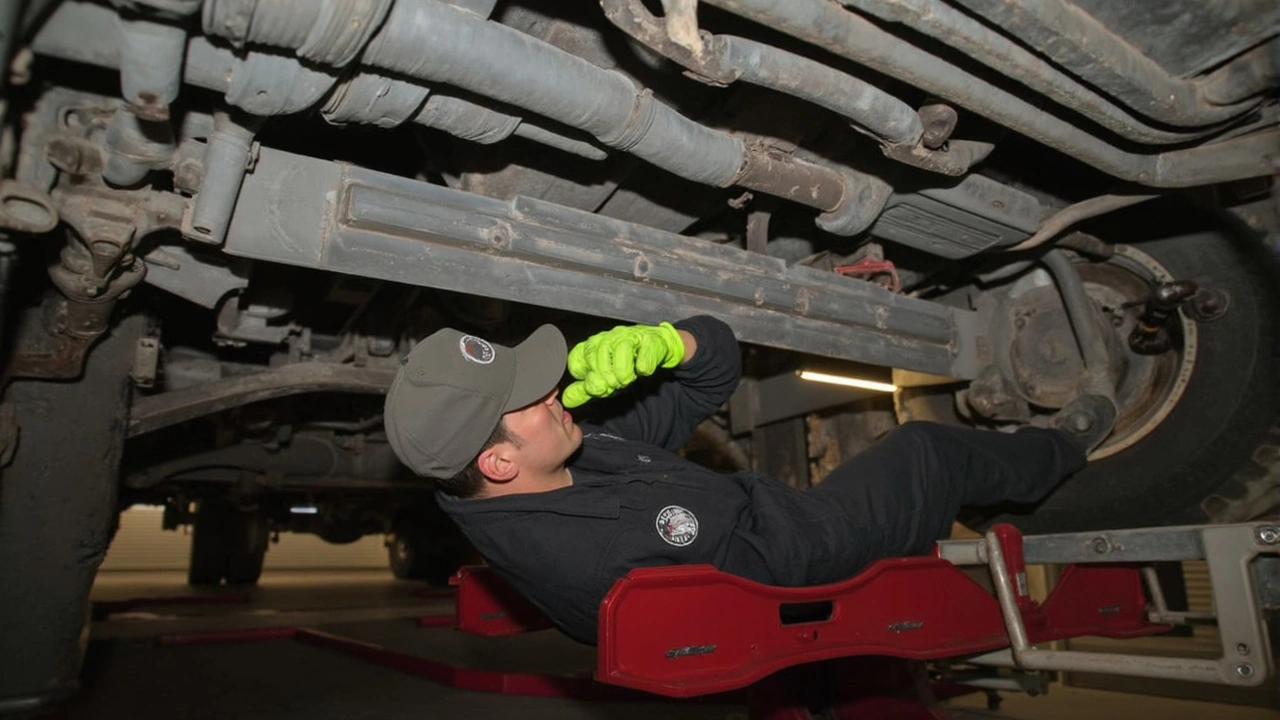Commercial Vehicle Inspections: Your Quick Start Guide
If you run a fleet or own a big truck, you’ve probably heard the term “commercial vehicle inspection” a lot. But what does it really mean for your business? In short, it’s a routine check to make sure every vehicle on the road meets safety and legal standards. Skipping these checks can lead to costly fines, breakdowns, or even accidents. Let’s break down why inspections are a must and how you can tackle them without pulling your hair out.
Why Regular Inspections Matter
First off, the law is clear: most commercial vehicles need to pass a DOT (Department of Transportation) inspection at set intervals. Failing to comply can shut down a whole fleet, costing you time and money. Beyond legal issues, inspections catch small problems—like worn brakes or low tire pressure—before they turn into expensive repairs or dangerous situations. Think of it as a health check for your trucks; a quick look now can keep you from a big emergency later.
Another hidden benefit is a better resale value. A well‑documented inspection history shows buyers that you’ve taken care of the vehicle, which can boost the trade‑in price. And if you’re a contractor or carrier, clients often ask for proof of recent inspections before awarding jobs. So staying on top of this isn’t just about avoiding trouble—it’s a competitive edge.
DIY Inspection Checklist: Keep It Simple
You don’t always need a mechanic for every check. Here’s a straightforward, driver‑friendly checklist you can run through in under 30 minutes:
- Tires: Look for cracks, bulges, and check tread depth. Make sure pressure matches the manufacturer’s specs.
- Lights: Test headlights, brake lights, turn signals, and hazard lights. A quick push on the dashboard switches can reveal a burnt‑out bulb.
- Brakes: Listen for squeaking or grinding when you press the pedal. Feel for a soft or spongy response, which could mean air in the lines.
- Fluid Levels: Check oil, coolant, brake fluid, and windshield washer fluid. Top up anything low before you hit the road.
- Mirrors & Windscreen: Ensure there are no cracks or chips that could impair visibility. Clean them thoroughly for safety.
- Load Securement: Verify that cargo is tied down properly and weight distribution follows legal limits.
After you run through the list, jot down any issues in a logbook or digital app. This record becomes part of your official inspection file and helps mechanics focus on the right problems.
When it’s time for a formal DOT inspection, bring the log, recent maintenance receipts, and any repair orders. The inspector will go through a deeper check—like emissions, suspension, and under‑carriage components—but having your own notes speeds up the process and shows you’re serious about compliance.
Remember, the goal isn’t just to pass an audit; it’s to keep drivers safe, reduce downtime, and protect your bottom line. By treating inspections as a regular habit rather than a yearly chore, you’ll notice fewer surprises on the road and a smoother operation overall.
Got questions about scheduling inspections or choosing a certified inspector? Drop a comment below or reach out to a local fleet services provider. Staying ahead of the curve is easier than you think—just start with a quick walk‑around and keep the paperwork tidy.

Brake Safety Week 2025 to Spotlight Drums and Rotors in North American Commercial Vehicles
Brake Safety Week 2025 runs from August 24–30, with inspectors across North America zeroing in on commercial vehicle brake systems, especially drums and rotors. Unsafe vehicles will be sidelined until repaired. Last year, over 2,100 trucks were taken off the road for brake issues.
View more